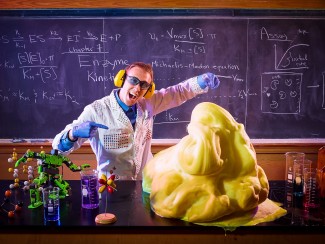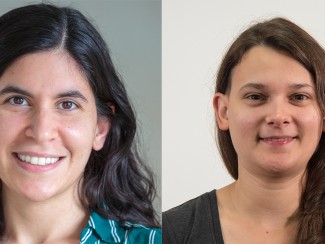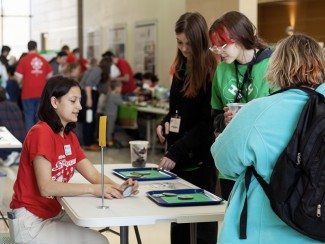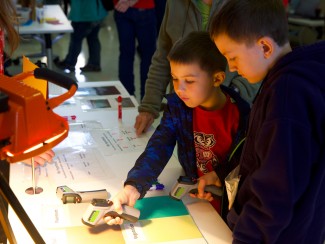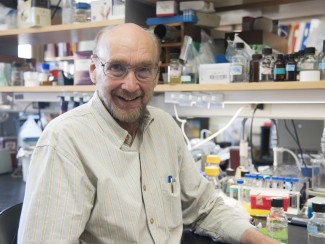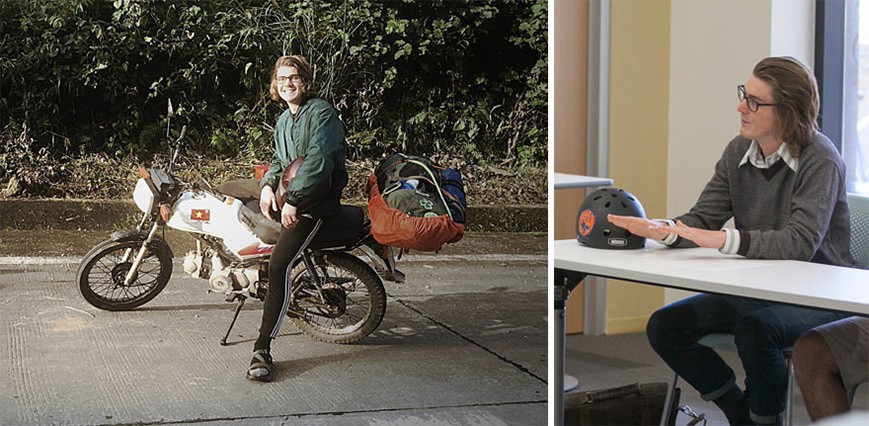
Evan Petkov sits at a metal table in front of the Wisconsin Energy Institute, completely relaxed. He’s graduating in a week, but the environmental sciences and economics major is remembering a trip he recently took to Southeast Asia. Riding a motorcycle across Vietnam and Laos with a friend, Petkov made note of the complex challenges facing developing countries. “They have traditional farming methods and communities,” he says, “yet there’s an incredible need for these cultures to devise an infrastructure that provides sustainable sources of energy as their development accelerates.”
In the face of surging population and economic development around the globe, an understanding of energy sustainability and conversion technologies is going to be key. To address these challenges, the University of Wisconsin–Madison’s College of Engineering teamed up with the Wisconsin Energy Institute in 2010 to create the Certificate in Engineering for Energy Sustainability (CEES).
This spring, the certificate program celebrates its five-year anniversary. By the end of 2015, close to 100 Badgers will have graduated the program, with another 65 in the pipeline to follow.
A major facet of the program is its focus on interdisciplinary learning. “We want our students to not just become aware of the big questions facing the energy industry,” says chemical and biological engineering professor Thatcher Root, who helped draft the requirements for the certificate and serves as an advisor to the program, “we want them to see that there are no easy answers. This way, graduates of the program can grasp that much of the skill in problem solving comes from learning how to ask the right questions.”
Root teaches a one-credit seminar that serves as one of the requirements for the certificate. In it, he asks students to delve into a topic about energy sustainability. These include innovative technologies from biomass conversion to solar and other renewable energy approaches now showing promise.
“For example, we know that biomass can be converted into ethanol for use in our gas tanks, but we’re now learning that wood can be separated into components to form all kinds of products,” notes Root. “There’s plenty of room for lots of people to work on lots of these questions without feeling like there's only one correct answer out there.”
This way, I gain a perspective on how to approach the energy problem not just from an environmental standpoint, but from an entrepreneurial and social justice angle as well.
Evan Petkov
It was the challenge of answering complex questions that attracted Evan Petkov to the certificate program in the first place. Since childhood, he’s had a passion for environmental issues, and with dual majors of environmental science and economics, Petkov’s knack for tackling issues from multiple directions fits right in with the program’s interdisciplinary mission.
“This way,” he says, “I gain a perspective on how to approach the energy problem not just from an environmental standpoint, but from an entrepreneurial and social justice angle as well.”
Since enrolling in the certificate program, Petkov has assisted in wastewater and biofuels research in Civil and Environmental Engineering professor Daniel Noguera’s laboratory, completed a summer internship with Dr. Tom Eggert of the Nelson Institute for Environmental Studies focusing on the adoption of sustainability practices among both large and small businesses in Wisconsin, and currently works at RENEW Wisconsin, a renewable energy advocacy nonprofit in Madison.
Still, one of the most rewarding projects Petkov undertook at UW–Madison was his CEES capstone project, completed this semester. Investigating a partnership between the Madison Metropolitan Sewerage District (MMSD) and the City of Madison’s nascent residential and commercial compost-recycling program, Petkov analyzed how MMSD could benefit from using additional organic feedstock to meet its NetZero energy goals. “Imagine getting electricity from not just people’s digested food waste [as MMSD already does], but from unused food waste as well,” he says. “It’s still a long way off, but the tools to put it in place are there already.” He also analyzed MMSD’s solar PV opportunities, recommending that they evaluate the possibility for renewable energy generation on their leased agricultural land.
It’s these big ideas that keep Petkov looking for the right questions, the right answers, and the right ways to approach the energy challenges our society faces. Next up: graduate school at Stanford’s Civil and Environmental Engineering Atmosphere/Energy program, where he’ll help develop a state-by-state and country-level plans for 100% energy sustainability for the Solutions Project, led by Professor Mark Jacobson.
On the verge of one achievement and gazing toward another, Petkov is full of promise, a future energy leader with a deep commitment to a society with a more sustainable infrastructure for us all.

